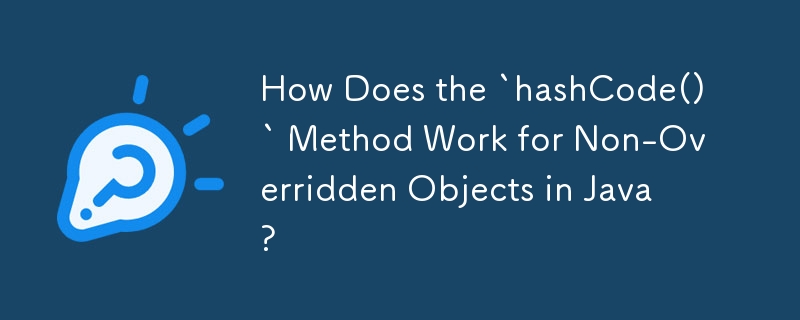

Understanding Hash Codes for Non-Overridden Objects in Java
In Java, objects inherit the hashCode() method from the Object class. This method, if not overridden, provides a default implementation for generating a unique identifier for an object.
What is the Default Hash Code?
When the hashCode() method is not overridden, the HotSpot JVM follows a specific behavior to generate hash codes:
JVM Hash Code Options
The behavior of the default hash code generation can be customized using the -XX:hashCode=n HotSpot JVM option. Possible values include:
Note: Even with -XX:hashCode=4, the hash code may not always point to the exact object address, as objects can be moved in memory. Additionally, object addresses are not evenly distributed, potentially leading to imbalanced hash tables.
Therefore, it's important to consider overriding the hashCode() method if you require specific hash code behavior for your objects.
The above is the detailed content of How Does the `hashCode()` Method Work for Non-Overridden Objects in Java?. For more information, please follow other related articles on the PHP Chinese website!




